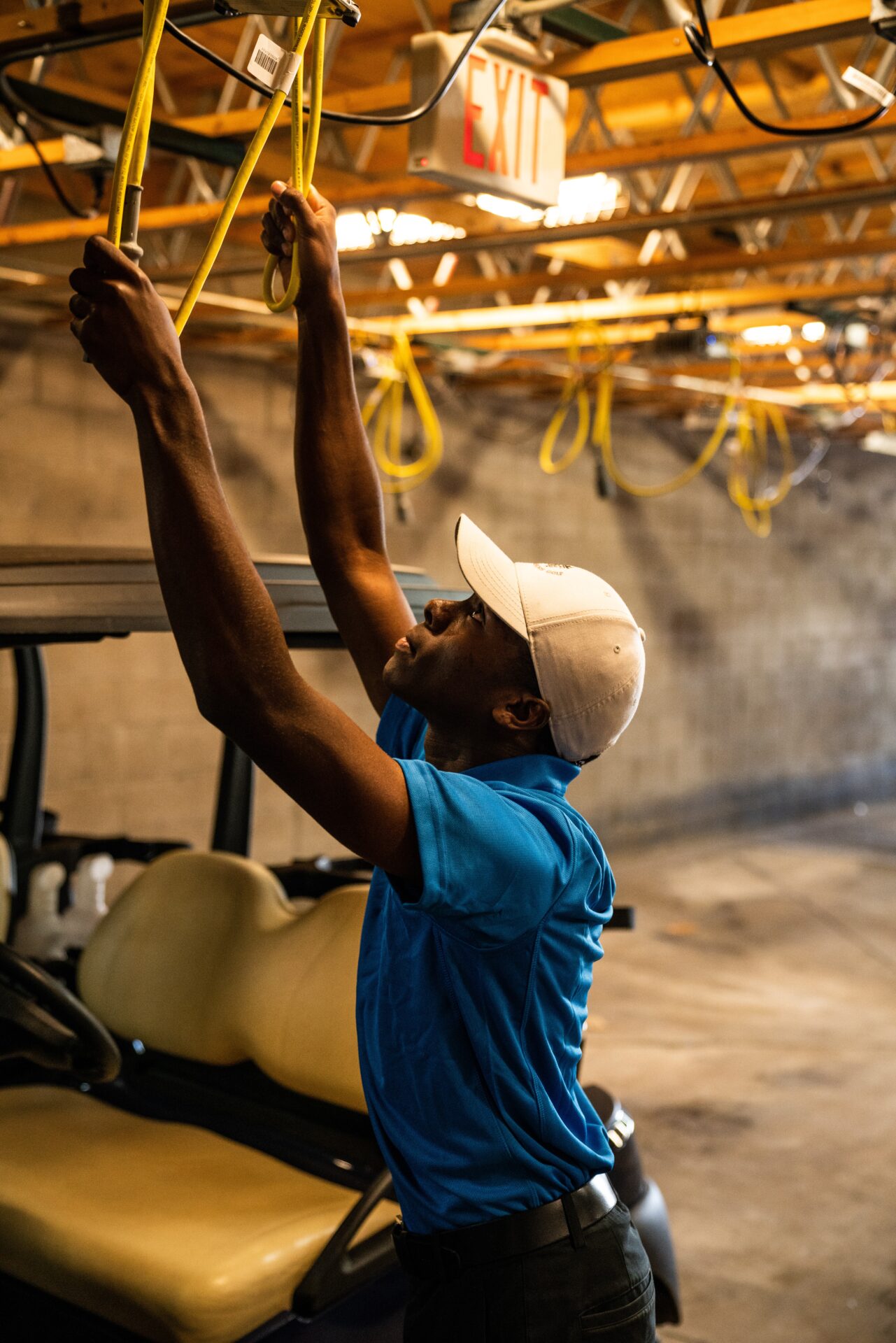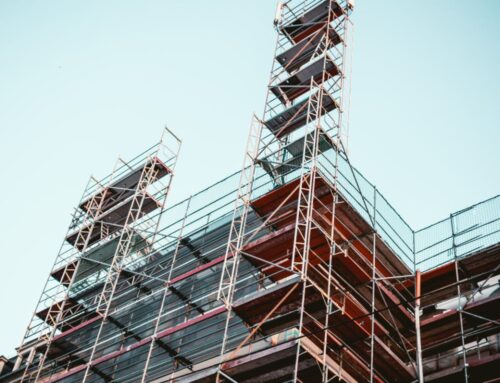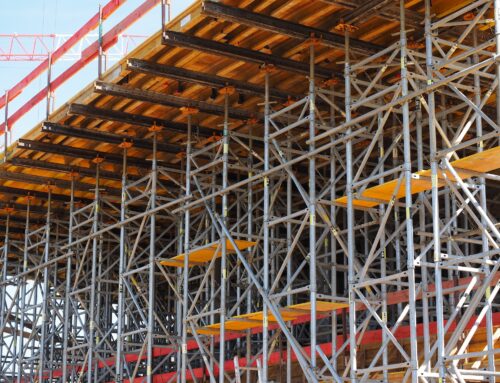Construction work is a job that has a variety of pressures such as tight contracts, long hours, time away from loved ones and managing budgets. Not to mention the added stresses that came from the pandemic and now the rising costs of living it is no wonder that mental health is something we should be talking about now more than ever.
There is also a “macho” culture within construction which prevents many workers from seeking support and help when they may need it, putting further stress on their own mental health and well-being.
Construction can be a rewarding and varied industry to work in. But it’s also one where pressures can be high, and people can be more likely than average to experience work-related stress and other mental health issues. That is why we have chosen to write this blog about Mental Health in Construction and why it is important to be talking about it.

How does Mental Health in Construction affect the industry?
The risks of workplace accidents and injuries impact the health and safety of employees for such reasons as not being able to spend a lot of time with their families and loved ones. This means that workers’ mental well-being also takes a hit since they miss important events and moments which then creates a sense of emotional detachment and loneliness.
Sadly, suicide now kills more construction workers than workplace falls every year, with 1 to 2 lives lost every working day. These shocking statistics show that there needs to be urgent action taken in addressing mental health issues within this industry.
Why is mental health important in construction?
It is important for employers and individuals to know just how important mental health awareness and support is to workers and how needed the change is within the industry.
Many construction workers are invisibly suffering from stress, anxiety and depression as they do not want to have a discussion about mental health. This is why Mental Health in Construction is high on the industry’s agenda with a real desire for change.
More workers need to be coming forward to discuss mental health so that it is no longer stigmatised as times are now changing which means that more construction firms are starting to see their staff’s mental health as a priority and so they should.
There has already been a lot of progress but there is still a long way to go in order to improve workers’ mental health.
What can be done?
There is so much that needs to be done surrounding Mental Health in Construction but where do we start? Education and training are definitely key to eliminating the stigma around mental health and tackling the silence surrounding it to create a positive culture change within the workplace but that is just one of the ways everyone could help.
Below we have listed more ways for people to help change the narrative on mental health so that it is not being overlooked anymore.
We should all be proudly promoting the support of mental health
Acknowledging that there is a mental health issue within the construction industry is the first step. We should all be promoting all the ways in which workers are able to get help and support so that we can create a safer environment for everyone.
Safety and construction already go hand in hand which is why we should be getting a firm grip on the impact of mental health in the workplace. There should be steps in place to bring awareness to depression, loneliness and anxiety that encourages workers to come forward if they are experiencing any mental health issues.
Therefore by creating a sense of transparency we can help to reduce the stigma and help to encourage a safe and open working environment within the construction industry.
Creating a positive working environment
The change should come from employers as they have the responsibility to provide care for their employees and to make sure that their working environment does not negatively affect their employees’ mental health.
To do this everyone should be made to understand the importance of building a strong well-being culture within the workplace where everyone is able to address mental issues among themselves.
That being said we understand that employers may be unable to tackle all of the issues in their employees’ lives, but they should be focusing on improving working conditions such as:
- Working relationships between and with their colleagues
- The management of occupational health risks
- An accepting and diverse workplace culture
- Working arrangements and hours
Provide the necessary training to all employees
The recognition of all the issues around mental health and the importance of tackling them has grown over the last year. Therefore it is crucial that all employees, particularly the higher ups help to identify when a member of staff may need support and can then show them where and how they can get help.
As a result of this, employers are now providing managers and supervisors with training to help them to enhance their empathy skills and learn how to listen to their employees who may need a helping hand and some extra support.
This extra help could be a number of things such as training on managing stress or recognising signs that a colleague may be experiencing mental health issues or even training modules on promoting a healthy work-life balance culture that introduces coping mechanisms for stress and anxiety to offer employees more support than ever.
Embrace the idea of flexible working
The value and importance of flexible working has grown since COVID-19 as more people understand that it creates a high-performance culture that helps to manage workplace stress.
Therefore the number of opportunities for flexible working will help to increase a positive effect on employees mental health as without a healthy work-life balance there is a higher chance of people burning out and reaching their limit.
Flexible working allows the staff to have more control over their timetable which in turn allows them to work around their personal commitments instead of the other way around. This is why it could be the solution to the demanding and intense working hours that are connected to mental health issues in construction.
How can we change this mental health narrative
We will have to start at the heart of businesses in order to create an environment where construction workers can speak up about their struggles and get the support they need.
But where do we start? The following are great ways to start helping those with their issues and to put what is needed in place so that people have access to the support they need.
- Start by educating your staff. By changing the narrative in the workplace you are able to create a safe place for everyone but it does require awareness and education.
- Offer resources and support for those that need it. Find out what it is exactly that they need in order to have a better working environment and make sure they have access to it.
- Work together with experts: there are a lot of organisations that are working towards improving mental health and suicide prevention. These companies can help to provide help, support and resources on how to approach mental health problems in the workplace which will help everyone to have a better work life.
- The Mental Health Policy: The mental health of workers determines the success and efficiency of a business. Having a mental health policy in place ensures that everyone gets the help and support they need.
- Consider flexible hours: Having a 4-day working week for construction workers has shown positive effects for employees, with greater productivity, employees being more engaged, and worksites being more organised. The workers are less fatigued and more engaged because they get the time off that they want with more opportunities to rest and recover which is then proven to lead to better mental health.
- Work and personal life balance: It has been normal in the construction industry for workers to work extremely long hours and their mental health and well-being has been affected by it. That is why there have been improvements to make sure that the mood and general well-being of employees will lead to strong mental health.
- Peers supporting each other: You can encourage your staff to keep in contact with someone who is struggling with their mental illness as this will help the worker to feel appreciated and wanted in the workplace.
- Have a return to work plan in place: If a worker is returning to work after a sabbatical or a break due to their mental illness then there should be a suitable return to work plan set in place. This should include a way of easing them back in slowly to the workload and you should also tactfully inform the team members of what is happening so that they understand what is to be expected from the affected worker and how they can support and help them.
Thank you for reading this blog about Mental Health in Construction UK. We believe that no construction worker or their family should be alone in time where they need the most help and support.
That is why we are asking our readers to work together to improve people’s welfare and just take the time to check on those around you. Remember it is okay not to be okay but please talk to someone if you are feeling any of the issues we have discussed in this blog.
Learn more about the history of scaffolding and its impact here!
Learn more about our scaffolding in…







